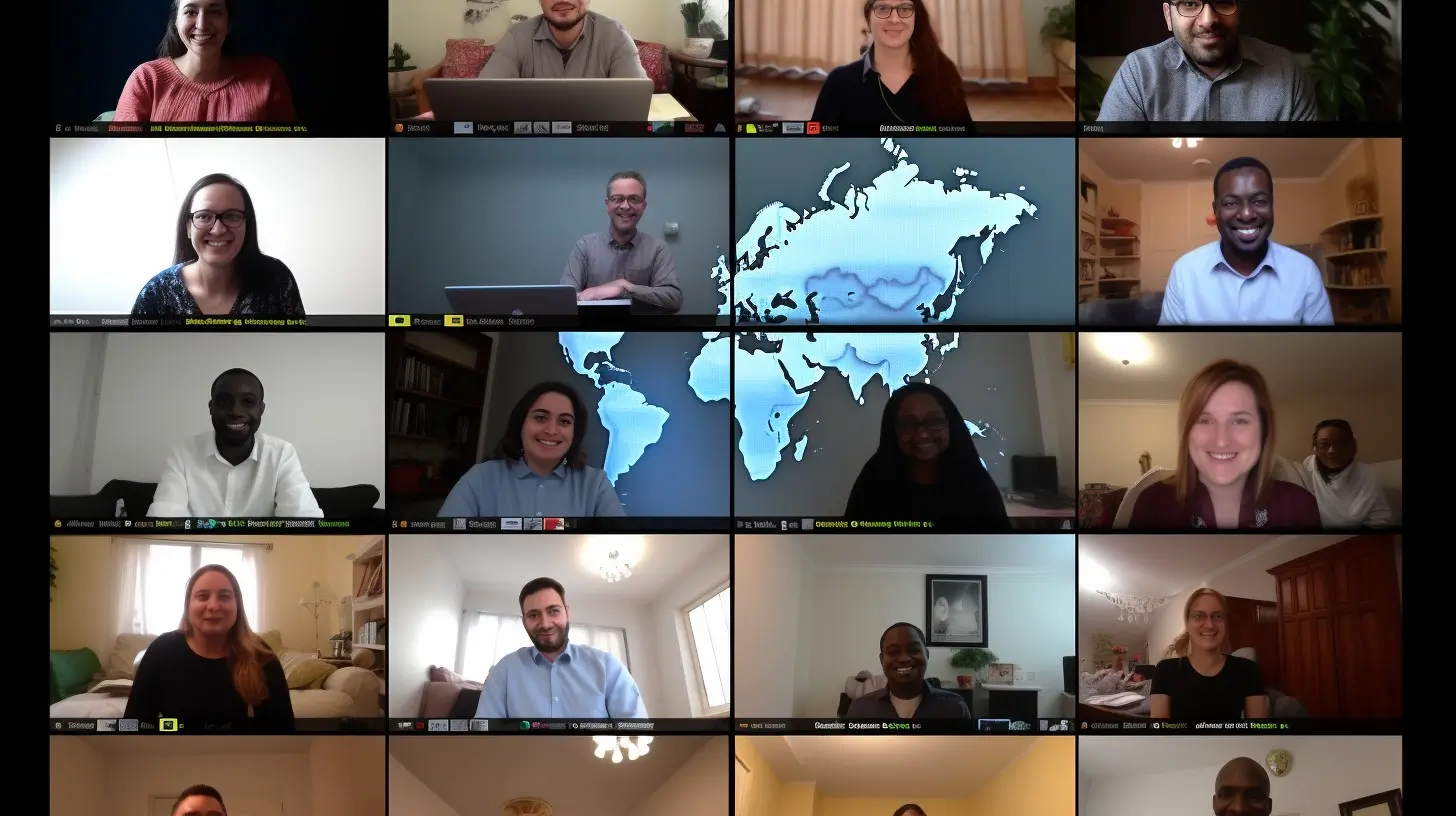The global workforce is evolving, with companies increasingly turning to remote talent to fill skill gaps and drive business growth. As digital transformation accelerates, businesses seek cost-effective, highly skilled professionals who can work remotely. Africa has emerged as a key hub for remote talent, offering a young, dynamic, and digitally skilled workforce that meets global hiring demands.
A World Economic Forum report highlights that Africa’s digital workforce is expected to grow by 130% by 2030, making it one of the fastest-growing talent markets. Meanwhile, 75% of global businesses report difficulty in hiring skilled professionals, particularly in AI, software development, cybersecurity, and cloud computing. This demand has fueled a shift toward hiring African remote professionals, giving companies access to a large, cost-effective, and highly capable talent pool.
Why the Global Market is Turning to Africa for Remote Talent
The Rising Demand for Skilled Remote Professionals
The global job market is experiencing an unprecedented shift toward remote work, driven by digital transformation, talent shortages, and the need for cost-effective hiring solutions. Companies are increasingly hiring remote talent to access specialized skills, increase workforce flexibility, and improve operational efficiency.
Key Drivers of the Remote Talent Boom
- Global talent shortages: 75% of businesses struggle to find skilled professionals in fields like AI, cloud computing, and cybersecurity.
- Cost efficiency: Hiring remote professionals from emerging markets reduces labor costs without sacrificing quality.
- Remote work infrastructure growth: Advances in cloud computing, remote collaboration tools, and AI-driven hiring platforms have made global recruitment seamless.
As companies shift toward skills-based hiring, they are looking beyond traditional talent hubs and exploring emerging markets like Africa, where the workforce is rapidly expanding.
Why Africa is Becoming a Key Remote Talent Hub
Africa is quickly becoming a leading source of remote talent, thanks to its large, tech-savvy workforce and rising digital and green economy. Companies hiring from Africa gain access to highly skilled professionals at competitive costs, helping them scale faster.
Key Advantages of Hiring Remote Talent from Africa
- A Young and Growing Workforce – Over 60% of Africa’s population is under 25, creating a strong pipeline of tech-savvy professionals.
- Government and Private Sector Investment – Increased funding in STEM education, coding bootcamps, and AI training programs is driving workforce readiness.
- Lower Hiring Costs – Companies can access highly qualified remote professionals at more affordable rates than in Western markets.
- Time Zone Flexibility – African professionals can work with both European and U.S. companies, improving collaboration and workflow efficiency.
According to a McKinsey report, Africa is producing a growing number of skilled professionals in AI, cybersecurity, fintech, and digital marketing, making it a prime destination for remote talent acquisition.
The Rise of Borderless Hiring and Its Impact on Africa
The concept of borderless hiring is gaining traction as companies realize the benefits of hiring from a global talent pool. With remote work becoming mainstream, businesses are no longer restricted to hiring locally and are instead tapping into international remote professionals.
How Borderless Hiring is Transforming Africa’s Workforce
- More companies are outsourcing work to Africa, providing higher-paying remote jobs and boosting economic growth.
- Tech hubs in Nigeria, Kenya, South Africa, and Egypt are attracting investments from global businesses looking for specialized digital talent.
- African remote professionals are increasingly hired for roles in AI, software development, customer support, and data analytics, making them key players in the global digital economy.
The shift toward remote hiring is not just a short-term trend—it represents a permanent change in how businesses recruit and retain talent. As companies continue to face talent shortages, hiring African remote professionals will become a strategic advantage.
High-Demand Sectors for Remote Talent from Africa
Software Development and IT Services
Africa is emerging as a global powerhouse for remote software development and IT services, driven by increased investment in tech education and a growing number of skilled developers. Companies worldwide are hiring African software engineers, cloud computing specialists, and IT support professionals to bridge skill gaps and scale operations efficiently.
Why Businesses are Hiring African Remote Developers
- A rapidly growing tech ecosystem – African startups and tech hubs are producing highly skilled developers trained in Python, JavaScript, and AI technologies.
- Cost-effective software development – Businesses save up to 40% on hiring costs when outsourcing IT work to remote teams in Africa (Source: Deloitte)
- Remote-friendly work culture – Many African developers work on international projects, making them experienced in remote collaboration and agile methodologies.
Key Roles in Demand
- Full-stack developers (React, Node.js, PHP)
- Cloud computing engineers (AWS, Azure, Google Cloud)
- AI and machine learning specialists
With global companies competing for top-tier software talent, Africa’s remote workforce is positioned to fill the talent gap in IT services and software development.
Cybersecurity and Data Analytics
The rise of cyber threats and data-driven decision-making has made cybersecurity and data analytics two of the most in-demand fields worldwide. With a shortage of cybersecurity experts in Western markets, businesses are turning to Africa’s growing pool of remote security professionals and data analysts.
Why Cybersecurity and Data Roles are Growing
- Cybercrime is expected to cost businesses $10.5 trillion annually by 2025, increasing the need for cybersecurity experts (Source: Cybersecurity Ventures).
- Data science and analytics jobs are growing by 28% per year, making them among the fastest-growing remote careers (Source: WEF).
- Many African professionals are certified in ethical hacking, penetration testing, and data science, making them highly sought after by global firms.
Key Remote Roles in Demand
- Cybersecurity analysts and ethical hackers
- Big data engineers and business intelligence analysts
- Data visualization specialists
By hiring remote cybersecurity and data professionals from Africa, companies can protect their digital assets, improve decision-making, and gain a competitive advantage.
Digital Marketing and E-Commerce Support
With the explosion of e-commerce and digital advertising, businesses are increasingly outsourcing marketing and customer engagement tasks to remote professionals. African digital marketers, SEO experts, and content strategists are playing a crucial role in helping companies grow their online presence.
Why Companies are Hiring African Digital Marketers
- Growing expertise in SEO, social media marketing, and content creation.
- More than 50% of marketing roles can be performed remotely, making digital marketing an ideal field for global talent integration (Source: HubSpot).
- E-commerce brands need customer support and chat agents to handle high-volume online sales and inquiries.
Key Remote Marketing Roles in Demand
- SEO specialists and content marketers
- Social media managers and digital ad strategists
- E-commerce customer support agents
By leveraging remote digital marketing professionals from Africa, businesses can expand their brand reach, optimize sales, and improve customer engagement strategies.
The Future of Remote Hiring in Africa
AI and Automation in Talent Sourcing
As global demand for remote talent rises, companies are increasingly adopting AI-driven recruitment technologies to streamline the hiring process. AI-powered platforms are helping businesses identify, assess, and onboard skilled professionals from Africa more efficiently than traditional hiring methods.
How AI is Changing Remote Hiring
- 87% of businesses plan to integrate AI into their hiring and workforce management strategies (Source: WEF).
- AI-driven applicant tracking systems (ATS) reduce hiring time by up to 50%, allowing companies to quickly source qualified candidates.
- Machine learning algorithms analyze candidate skill sets, helping recruiters match African remote professionals with high-demand global job roles.
AI-Powered Recruitment Tools in Use
- Predictive hiring models that forecast job success rates.
- Automated resume screening for faster candidate selection.
- AI-driven skill assessments to validate technical expertise.
With AI and automation transforming talent acquisition, Africa’s remote workforce is becoming more accessible to global employers, further fueling demand for African digital professionals.
Expanding Internet and Digital Infrastructure
One of the biggest challenges in remote hiring from Africa has been infrastructure limitations, but that is rapidly changing. Governments and private sector players are investing heavily in broadband expansion, 5G technology, and digital co-working spaces, making it easier for African professionals to work remotely for international clients.
Key Digital Infrastructure Developments
- Africa’s broadband penetration rate has grown by 25% in the last five years, improving access to remote work opportunities.
- Countries like Nigeria, Kenya, and South Africa are investing in fiber-optic networks to support seamless virtual collaboration.
- More remote-friendly co-working spaces are opening, providing reliable high-speed internet access to freelancers and remote employees.
How Digital Expansion is Driving Remote Hiring
- Faster, more reliable internet connections allow professionals to work for global companies without disruptions.
- Lower internet costs make remote work accessible to a broader range of skilled African workers.
- Businesses are expanding their remote operations into African tech hubs, tapping into new talent pools.
As Africa’s digital infrastructure continues to improve, more companies will feel confident hiring remote talent from the region.
The Rise of Hybrid and Remote-First Work Models
The future of work is shifting toward hybrid and remote-first models, where businesses combine in-house teams with globally distributed remote professionals. African remote workers are becoming an integral part of this transition.
Why Hybrid Work is Becoming the Standard
- 50% of global businesses are adopting hybrid workforce strategies (Source: PwC).
- Hybrid models offer flexibility, allowing employees to work remotely while collaborating in-person when necessary.
- Companies with hybrid teams report higher productivity and better workforce retention.
How Businesses Can Successfully Integrate African Remote Talent
- Implement hybrid-friendly policies, allowing African professionals to blend seamlessly into global teams.
- Use cloud-based collaboration tools (Slack, Zoom, Trello) to ensure efficient cross-border teamwork.
- Invest in digital upskilling programs to train African remote workers in emerging technologies like AI, blockchain, and cybersecurity.
With hybrid work and remote hiring trends shaping the future, businesses that embrace Africa’s growing remote workforce will gain a strong competitive edge.
Conclusion
The demand for remote talent is growing, and Africa is emerging as a key player in the global workforce. With a young, tech-savvy population, expanding digital infrastructure, and increasing investment in AI-driven recruitment, African professionals are becoming a go-to resource for businesses worldwide.
Companies that embrace borderless hiring can access highly skilled professionals in software development, cybersecurity, data analytics, and digital marketing, filling critical skill gaps at competitive rates. The rise of hybrid work models and AI-powered hiring tools is making it easier than ever to integrate African remote professionals into global teams.
As digital transformation accelerates, businesses that invest in Africa’s remote workforce today will gain a competitive advantage, ensuring scalability, cost efficiency, and long-term innovation. The future of global hiring is remote, and Africa is at the center of this transformation.













